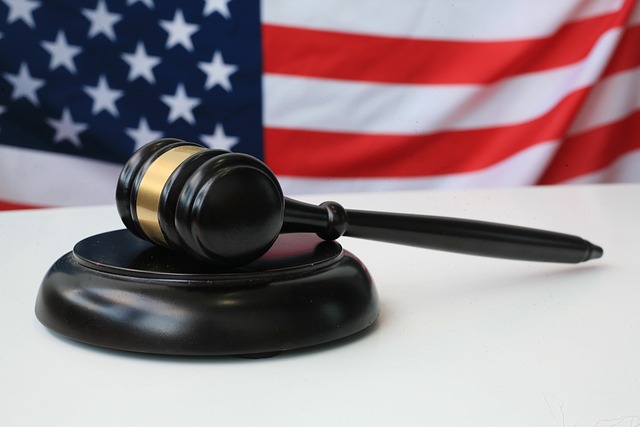M&A lawyers play a pivotal role in the complex process of corporate mergers and acquisitions, serving as expert legal advisors who ensure compliance with intricate laws, including antitrust statutes and securities regulations. They are skilled in drafting and scrutinizing key transactional documents, safeguarding client interests, optimizing tax outcomes, and protecting intellectual property rights. These lawyers excel in risk assessment and structuring deals to anticipate and manage litigation risks, particularly concerning company valuation and contractual interpretations. In litigation specific to M&A, legal counsel's deep knowledge of the relevant laws is crucial for successful representation in court, where they formulate persuasive arguments and present evidence to influence court decisions. Due diligence, a critical aspect of their work, involves an extensive legal evaluation of the target company to ensure regulatory compliance, financial health, and operational effectiveness, thereby mitigating potential legal exposures and avoiding litigation pitfalls. Post-merger integration requires lawyers to align corporate governance, integrate legal entities, reconcile contractual obligations, and construct a legally sound structure for the merged entity, all while supporting its strategic goals and defending its interests in court and adhering to statutory requirements.
navigating the complex landscape of mergers and acquisitions (M&A) requires astute legal representation to safeguard interests and ensure compliance. This article delves into the pivotal role lawyers play in M&A processes, from strategic due diligence to post-merger integration. We explore how their expertise shapes courtroom outcomes and the legal intricacies involved in these transactions. Understanding the law is paramount for businesses looking to successfully navigate the M&A maze.
- Navigating the Legal Labyrinth: The Role of a Mergers and Acquisitions Lawyer
- Courtroom Considerations: How Legal Representation Shapes M&A Outcomes
- Strategic Due Diligence: Ensuring Compliance and Protection in Mergers and Acquisitions
- Post-Merger Integration: Legal Steps for a Seamless Transition and Operations
Navigating the Legal Labyrinth: The Role of a Mergers and Acquisitions Lawyer

In the complex interplay of corporate finance and strategic business planning, a mergers and acquisitions (M&A) lawyer plays a pivotal role, acting as a guiding force through the legal labyrinth. Their expertise lies in deciphering intricate statutes and regulations that govern the transfer of ownership, ensuring compliance with antitrust laws and securities regulations. These legal professionals are adept at drafting and reviewing transactional documents, including asset purchase agreements, stock purchase agreements, and merger proxy statements, all while safeguarding their clients’ interests in the courtroom and beyond.
The M&A lawyer’s role extends beyond mere document preparation; they also provide critical strategic advice to facilitate negotiations and due diligence processes. They are instrumental in assessing legal risks, structuring deals to minimize tax liabilities, and negotiating terms that protect their clients’ intellectual property rights. Their foresight helps clients navigate potential litigation that may arise from disputes over the valuation of companies or the interpretation of contractual obligations, thereby mitigating the risk of post-merger complications under the law.
Courtroom Considerations: How Legal Representation Shapes M&A Outcomes

When mergers and acquisitions (M&A) reach the courtroom, the role of legal representation becomes pivotal in shaping the outcome of proceedings. A seasoned lawyer’s expertise in navigating complex legal frameworks is crucial; they must understand intricate laws that govern M&A activities to protect their clients’ interests effectively. The legal team’s proficiency in constructing compelling arguments and their ability to present evidence in a persuasive manner can significantly influence the court’s decisions, potentially altering the trajectory of the merger or acquisition itself. In the courtroom, the lawyer’s strategic maneuvers and command of relevant laws are not just about legal precedent but also about anticipating the opposition’s moves and counteracting them with well-reasoned positions. The stakes are high, as the wrong legal strategy could lead to unfavorable rulings that might invalidate deals or impose burdensome conditions on their completion. Thus, the lawyer’s role extends beyond mere representation; it encompasses a strategic battle where legal prowess and in-depth understanding of corporate law can turn the tides in favor of a successful M&A outcome.
Strategic Due Diligence: Ensuring Compliance and Protection in Mergers and Acquisitions

In the realm of mergers and acquisitions (M&A), strategic due diligence stands as a critical safeguard for both acquiring companies and their legal counsel. A prudent lawyer will meticulously examine the target company’s legal compliance, financial stability, and operational efficiency to ensure that the acquisition aligns with the strategic objectives of the client. This process involves a thorough examination of existing contracts, adherence to regulations, and potential risks that could impact the integrity and value of the business post-merger or acquisition. The lawyer’s role is pivotal in identifying any legal vulnerabilities or compliance issues that may arise, thereby protecting the interests of their client and avoiding costly litigation in the courtroom that often follows when due diligence is overlooked.
The due diligence process extends beyond mere financial analysis; it encompasses a comprehensive review of the target’s legal standing. This includes scrutinizing past, present, and potential legal liabilities, intellectual property rights, and compliance with industry-specific laws. A seasoned lawyer will leave no stone unturned in this investigation, leveraging their expertise in law to navigate the complexities of regulatory environments and ensuring that all aspects of the target’s operations are examined for any issues that could impact the acquisition negatively. The aim is to facilitate a smooth transition for the merged entity, minimizing future legal disputes and fostering long-term success and growth.
Post-Merger Integration: Legal Steps for a Seamless Transition and Operations

Post-merger integration is a complex legal process that requires meticulous planning and execution to ensure a seamless transition and efficient operations. A seasoned lawyer with expertise in corporate law and mergers and acquisitions plays a pivotal role in this phase. They are tasked with aligning the combined entity’s governance structure, compliance frameworks, and operational protocols. This involves integrating legal entities, harmonizing contractual obligations, and ensuring adherence to all relevant laws and regulations. The lawyer must navigate through a myriad of jurisdictional laws to ascertain that all post-merger activities are in conformance with the courtroom rulings and statutory requirements. Additionally, they must address any overlapping or redundant functions, ensuring that the new entity operates optimally without legal encumbrances that could impede its progress. The integration process is not merely about consolidation; it’s about creating a legally sound structure that supports the long-term objectives of the merged company while safeguarding its interests in the court of law and beyond.
In the complex realm of mergers and acquisitions (M&A), the guidance of a skilled lawyer is indispensable. This article has illuminated the critical roles these legal experts play in navigating the intricate Legal Labyrinth, shaping courtroom outcomes, conducting thorough due diligence to ensure compliance and protection, and orchestrating post-merger integration with precision. For entities embarking on M&A endeavors, the law is not just a set of rules but a strategic tool that can make or break a deal. Therefore, the choice of representation is a pivotal decision that directly impacts transactional success and long-term stability. It underscores the necessity for businesses to engage with lawyers who bring a deep understanding of both the legal framework and the nuances of corporate dynamics to the table.
